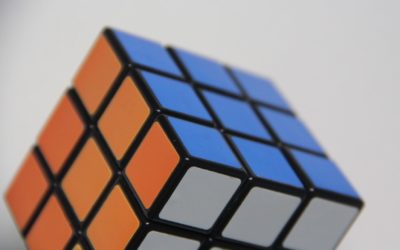We were asked: How can I modify the curricula for dyslexic students without compromising standards? MODIFICATIONS VS. ACCOMODATIONS Usually, when 504s or IEPs are discussed, accommodations are mentioned more often than modifications. Accommodations refer to...
Statistician with Dyscalculia – A Chat with Dylan Lynn [Premium]
How can a statistician have dyscalculia? Welcome to the wonderful world of mathematics – the field is as wide as it is deep. One of the keys to Dylan’s love of statistics, and later data analysis is that she loved math to tell stories. She loved the puzzle-solving aspect of statistics and how information could be made accessible through analysis to drive decision-making and policy. Although Dylan had indeed struggled with many lower level aspects of math – like timed math fact retrieval, math symbols, and fractions, she flourished as a data analyst in tech companies, drawing trends across disciplines and communicating what she learns from patterns that she recognizes to drive informed decisions. Such a career has many aspects of MIND […]
Teaching Math with Visual Models [Premium]
One way to teach to students’ strengths is to build on nonverbal reasoning and experimential – multisensory learning strengths in math. What does that mean? It means not being in a hurry to have students work through math problems before a strong foundational understanding and technical math meanings are established, and building on math reasoning before diving into math problem-solving involving symbols and technical language. Room to Discover has an excellent post on Visual Models. With five representations of mathematical ideas, why is there so much focus on verbal and symbolic work? The creator of Room to Discover also runs workshops and publishes manipulatives and other resources to his store. The Room to Discover site focuses on graphic representations – but a related […]
Building on Strengths in Math
Up to 70% of dyslexic people also have dyscalculia (specific math disability), although specific math supports or interventions are rarely a part of public school IEPs or 504's. Part of the reason there is less support for math among dyslexic students in the US is...
Math Problems: Does It Matter If It’s Identified As A Math Disability? [Premium]
There are millions of school children struggling with math at school. Does it matter if a student’s math struggles are identified formally as a math disability or dyscalculia? 40% of dyslexic people are likely to also have dyscalculia, but because dyscalculia is rarely assessed in schools, few individuals ever receive that designation. Does it matter? In the short term, some school professionals might say it does not matter much – because students who need help in math will get it if their scores qualify. What do we believe? Having a math LD formally identified can be helpful – although we realize that testing may not always be easily available. If you are a testing professional, consider adding the WIAT Math subtests to routine comprehensive battery […]
Dyslexia and Math: Knowing Why [Premium]
It’s been estimated that almost half of dyslexic individuals will also be dyscalculic (Wilson et al., 2014), but dyscalculia is less likely to be assessed or formally identified in school, leaving students to flounder on their own. WHY IS DYSLEXIA COMMONLY ASSOCIATED WITH MATH LD? Experts still debate why there is such significant overlap, but at least one recent study found that spatial difficulties were especially associated with students with dyscalculia or those with both dyslexia and dyscalculia. Besides spatial factors, difficulties in sequencing, trouble with symbols, working memory overload, and rote math fact retrieval are all difficulties commonly seen among dyslexic students and those with dyscalculia. What is not particularly common among dyslexic students is difficulty with math reasoning – in fact for […]
How to Not Go Crazy from Fractions and Decimals [Premium]
Fractions and decimals can drive a lot of us crazy. After learning “big” or “long numbers” are larger, suddenly fractions and decimals come along to flip these assumptions upside-down. For dyslexic students, care must be taken at the first step of understanding the equivalences among the different representations of fractions and decimals before moving onto calculations. WHY STUDENTS MAY STRUGGLE WITH FRACTIONS AND DECIMALS Creative Maths has a nice summary of why decimals are so difficult. An excerpt: “Without zero, 2001 and 201 and 21 would all look the same! From early on we recognize that longer numbers represent larger quantities. We know that a salary with lots of zeroes is better than one with only a few. $1000000 is more than $200 even […]
Math Strategies Instead of Drill [Premium]
In the many years Brock and I spent testing and listening to dyslexic students at every level of education, we often heard first hand accounts of how they learned how to tackle difficult subjects and bypass school-related challenges. As research studies bear out (for instance, see Kirby’s study of dyslexic university students), many dyslexic students in higher education have arrived at where they are because they are deep learners, savvy about how they learn best, and strategic in how they approach school. Brain-Based Reasons Why Math Strategies Are Better for Dyslexics Than Drill But there is also neurobiological evidence that supports why strategies may be a superior route for dyslexic learning compared to drill or simple repetition. By now, anyone who knows about brain […]
Dyslexia and Dyscalculia
How often do individuals with dyslexia also have dyscalculia, a specific disability in math? As many as 30-70% of dyslexic students may also be dyscalculic, but math difficulties are rarely tested for in schools, so specific needs for a particular student are rarely...
What Kind of Dysgraphia [Premium]
A recent clinical review of dysgraphia has defined dysgraphia in the following way: “At its broadest definition, dysgraphia is a disorder of writing ability at any stage, including problems with letter formation/legibility, letter spacing, spelling, fine motor coordination, rate of writing, grammar, and composition.” Developmental dysgraphia (i.e. dysgraphia not based on some known injury) is described in the same article as having a “difficulty in acquiring writing skills despite sufficient learning opportunity and cognitive potential.” When a teacher or other professional asks a parent about “what type of dysgraphia their student might have,” they may be referring to the so-called “5 Types of Dysgraphia”, that often include, “motor”, “dyslexic”, “spatial”, and so on – but these distinctions are rarely clear-cut in real life and […]
Answer Apps and the Benefits of Learning in Reverse [Premium]
Conventional lecture courses for subjects with problem sets can be inefficient. For dyslexic students if the information comes in too quickly, they can’t follow steps as a teacher works through problems in real time. A recurring scenario for many students (and not just the dyslexic ones) is that to truly understand, the students must work through the material themselves at home. The lucky ones have a parent, sibling, or someone else to be a tutor, while others may struggle looking at incomplete notes with only a hazy idea of what teachers did to arrive at their answers. Having teachers notes or having a flipped classroom (watch a video first, then see the problems worked by a teacher) can improve this situation, but inevitably there […]
Math Strategies Without Anxiety with Stanford Prof Jo Boaler
If you anticipate working with a student on math this coming year, what approach will you take? Dr. Jo Boaler has tips that can help create a positive atmosphere for learning. https://vimeo.com/163871454 To read the entire handout...

![Q: How Can I Modify Curricula for Dyslexic Students Without Compromising Standards? [Premium]](https://www.dyslexicadvantage.org/wp-content/uploads/2024/03/Modify-Curricula-for-Dyslexic-students-400x250.jpg)
![Statistician with Dyscalculia – A Chat with Dylan Lynn [Premium]](https://www.dyslexicadvantage.org/wp-content/uploads/2024/01/Screen-Shot-2024-01-07-at-9.53.13-PM-400x250.png)
![Teaching Math with Visual Models [Premium]](https://www.dyslexicadvantage.org/wp-content/uploads/2023/12/Teaching-Math-with-Visual-Models-400x250.jpg)

![Math Problems: Does It Matter If It’s Identified As A Math Disability? [Premium]](https://www.dyslexicadvantage.org/wp-content/uploads/2023/07/MATH-PROBLEMS-DOES-IT-MATTER-IF-ITS-IDENTIFIED-AS-A-MATH-DISABILITY-D_A-400x250.png)
![Dyslexia and Math: Knowing Why [Premium]](https://www.dyslexicadvantage.org/wp-content/uploads/2022/12/Dyslexia-and-Math-Knowing-Why-Dyslexic-Advantage-C.jpg)
![How to Not Go Crazy from Fractions and Decimals [Premium]](https://www.dyslexicadvantage.org/wp-content/uploads/2022/05/math-dyslexia-decimals-fractions-400x250.png)
![Math Strategies Instead of Drill [Premium]](https://www.dyslexicadvantage.org/wp-content/uploads/2022/03/Math-Strategies-Instead-of-Drill-DA-Premium-March-2022-2-e1648381776105-400x250.png)

![What Kind of Dysgraphia [Premium]](https://www.dyslexicadvantage.org/wp-content/uploads/2021/09/What-kind-of-dysgraphia-2-400x250.jpg)
![Answer Apps and the Benefits of Learning in Reverse [Premium]](https://www.dyslexicadvantage.org/wp-content/uploads/2021/09/answer-apps-2-2-400x250.jpg)














